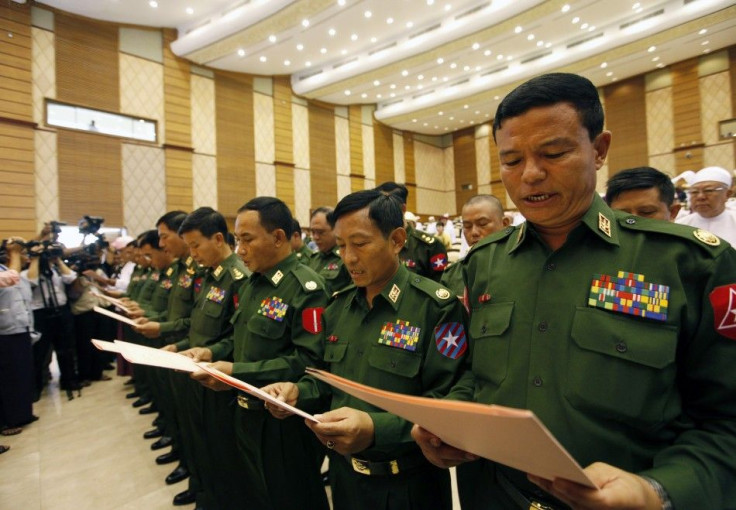Myanmar Opposition Boycotts Parliament Even As Sanctions Lifted

Myanmar's opposition party, the National League for Democracy (NLD), led by Aung San Suu Kyi, has decided to boycott parliament only three weeks after a historical victory that sent her and 41 others to the legislature.
That comes just after an announcement by the European Union that it will be suspending nearly all sanctions on Myanmar, short of opening up arms exports to the country.
The lifting of sanctions on Myanmar is widely seen by international analysts as reward to the government for further opening up the country to liberalizing political reforms. Myanmar, which the West still widely refers to as Burma, held parliamentary by-elections on April 1, catapulting Aung San Suu Kyi, the long-time political and human rights activist, into a legislative seat. Besides her seat, the NLD won a further 42 out of 45 at stake in the election.
Aung San Suu Kyi had only been freed from her most recent stint under house arrest in November 2011.
The reason for the boycott is that the NLD wants to swear 'respect' rather than to 'safeguard' the Myanmar constitution, which it sees as intrinsically flawed.
Ohn Kyaing, an NLD member of parliament, told the BBC that only after the wording in the oath has been changed will we be able to attend the parliament.
The NLD is protesting the wording of Myanmar's 2008 constitution, which ensures that 25% of both houses of the national parliament, and state parliaments, are guaranteed to the ruling Union Solidarity and Development Party, an organization formed by the country's former military junta during the transition to civilian rule between 2010 to 2011.
Although the issue can appear to be semantic, it strikes at the heart of the NLD's position: pushing for further political reforms in Myanmar.
The USDP and the military together still hold three-quarters of the country's 664 parliamentary seats.
David Steinberg, distinguished professor at Georgetown University's School of Foreign Service Asian Studies Program and an expert on Myanmar, said that the country's parliament is a representative institution with democratic elements, but not yet a democratic institution.
Myanmar analysts believe that Thein Sein, the current president, does not carry the same influence or level of authority as his predecessor, Than Shwe, the last chairman of the military junta which ruled the country for fifty years.
Steinberg predicted that reforms would mostly likely proceed in the country in a tempered and adjusted fashion, in light of the political and international environment.
Thein Sein is not expected by Western observers to run again in presidential elections in 2015; many expect that Aung San Suu Kyi will be a leading candidate.
He added that the military, which still wields powerful influence, and the NLD needed to build reciprocal trust for Myanmar to move forward.
Distrust between ethnic populations, military and civilian groups, and various political parties still dominates throughout Myanmarese society.
© Copyright IBTimes 2024. All rights reserved.




















